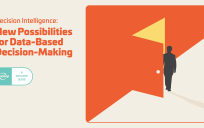![]() Last week’s First 5 post discussed ways to be a lifelong learner. One of the best ways of achieving that is being a lifelong reader. However, the statistics on post-graduate reading are surprising: almost 30% of adults have not read a book in the last year. Millennials are bucking the trend though. Eighty percent of young adults have read a book in the past year, while that number falls to 71% for those ages 30 to 49, and to 68% for those 50 to 64 and 69% for those 65 and older.
Last week’s First 5 post discussed ways to be a lifelong learner. One of the best ways of achieving that is being a lifelong reader. However, the statistics on post-graduate reading are surprising: almost 30% of adults have not read a book in the last year. Millennials are bucking the trend though. Eighty percent of young adults have read a book in the past year, while that number falls to 71% for those ages 30 to 49, and to 68% for those 50 to 64 and 69% for those 65 and older.
Reading can help millennials starting their career. Starting in the workforce requires a unique set of skills, one that is rarely discussed in the classroom. As millennials, making the shift between college and the workplace can be challenging, and learning more about steps for success can make the transition easier. Begin your journey of lifelong learning with these books about the workplace.
As millennials begin their careers, it can be difficult to understand the place that work has in our lives and the place that our lives have in work. Whyte’s book reflects that tension both in its content and poetic style. He uses a nautical voyage as a metaphor for a person’s journey through the world, and his writing can help us understand the potential of work. One review said, “This may be the most consoling piece of writing ever published on the subject of work. Not work as Hobbesian toil, personal achievement, or financial getaway, but work as a life-long expression that can be deeply satisfying and awakening.”
Dare has been compared to Sheryl Sandberg’s Lean In with a twist: the book focuses on how women can achieve success without starting with the assistance of a brand name college or established professional network. Blalock describes her message as “ ‘lean in’ but with tips on finding ways to get yourself noticed and creating opportunities at every step of the way.” Young women starting off in the public sector can use this book to help establish their own networks and career paths.
All relationships have elements of give and take, and this is especially significant in a professional context. Based on this idea as well as the oft-cited principle of “paying it forward,” this book examines the successes and challenges that “takers,” “givers,” and “matchers” face in the workplace. Millennials can use this to understand their own working styles as well as how to better interact with colleagues and managers.
- Millennials@Work: The 7 Skills Every Twenty-Something (and Their Manager) Needs to Overcome Roadblocks and Achieve Greatness by Chip Espinoza
Building relationships; asking for details; seeing the big picture; knowing when to focus; seeking feedback; being accountable; and recognizing your value—these are the seven skills that Espinoza lists in his book as essential for millennials. A general overview, this book can provide millennials with a broad understanding of what challenges they might face in the workplace and how they can use their skills to come up with effective solutions. This can be especially helpful for those who are just starting out in the workforce.
- Never Eat Alone, Expanded and Updated: And Other Secrets to Success, One Relationship at a Time by Keith Ferrazzi
In many ways, the secret to success is other people, and yet “networking” is often cited as one of people’s least favorite things. However, networking can be a positive force when it builds genuine relationships instead of artificial connections based on personal need. Ferrazzi breaks down this relationship building into practical principles, like don’t keep score and stay in touch even if you don’t need anything. This book can help millennials turn networking from a dreaded task into a personally fulfilling part of their careers.
This post is part of GovLoop’s millennial blog series, First 5.



Leave a Reply
You must be logged in to post a comment.